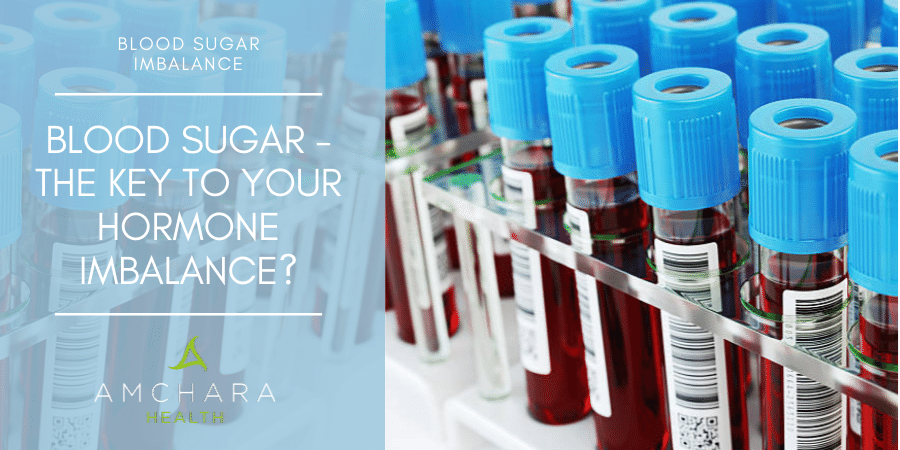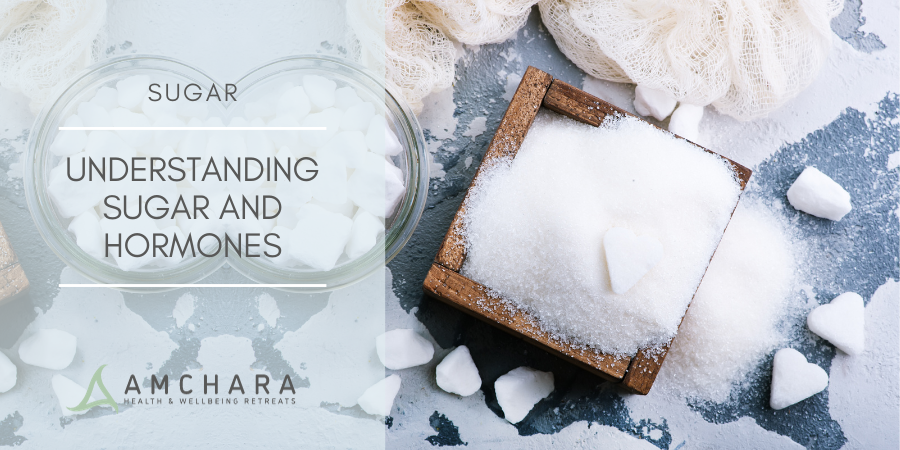Symptoms
Functions
Causes
Treatment
Supplements
Free Health Consultation
The topic of blood sugar balance seems to be everywhere, perhaps unurprisingly considering the rising number of people with Type 2 diabetes.
However, this is not a condition reserved solely for this part of the population – many otherwise healthy people can be affected by blood sugar imbalances.
We always take an evidence-based approach and aim to provide you with actionable knowledge and tips to help you on your journey to optimal health.
So what does a blood sugar imbalance mean and how could it affect you?
A blood sugar imbalance typically means one of two things.
The level of blood sugar can be below the optimum range – this is termed ‘hypoglycaemia’ – or it can be above the optimum range – termed ‘hyperglycaemia’.
Ideally, blood glucose levels range from 90 to 130 mg/dL before meals, and below 180 mg/dL within 1 to 2 hours after a meal. (1)
Symptoms
An imbalance in blood sugar is relatively common and may leave you with a whole range of symptoms such as the following:
-
tired
-
drowsy during the day
-
struggling to wake up in the morning
-
difficulty concentrating
-
irritable
-
nervous and moody
-
forgetful
-
headachy
-
needing frequent meals
-
craving sweet food
Hypoglycemia is often due to excessive repeated intake of refined sugar and carbohydrates.
Other factors may influence your blood sugar levels such as:
-
increased alcohol consumption
-
low fibre intake
-
obesity/being overweight – an increase in body weight may predispose someone to high blood sugar levels
-
lack of exercise
-
stress, which causes hormones to be released that affect blood sugar regulation
Hyperglycaemia is due to inefficient blood sugar regulation.
The most common cause of hyperglycaemia is Diabetes mellitus (commonly referred to as Diabetes and including Type 1 and Type 2 diabetes and gestational diabetes), however, there are other medical conditions that can cause the condition such as:
-
Cushing’s syndrome
-
Hyperthyroidism
-
Pancreatitis
-
Pancreatic cancer
-
Unusual tumours that secrete hormones
-
Severe stressors on the body e.g. heart attack, stroke, trauma
-
Some medications including prednisone, glucagon, oral contraceptives, beta-blockers, oestrogens, phenothiazine’s etc. which can all elevate blood glucose.
If blood sugar is frequently too high it can cause damage to blood vessels, nerves, and organs.
Some of the indications of hyperglycaemia include thirst and frequent urination.
Headaches, fatigue, difficulty concentrating, blurred vision and hunger can also be experienced.
Why is it so important to have normal balanced blood sugar?
Your body functions at its best when it has a certain level of glucose circulating in the blood.
Glucose is a major source of energy for all cells and is particularly important for brain cells, which rely on glucose rather than other energy sources which are harder for the brain to utilise.
The brain is the most energy-demanding organ due to its huge number of neurons.
In fact, it uses 50% of all the sugar energy the body produces.
READ: Blood Sugar Imbalance: 11 Signs Your Body Is Crying For Help – by Lindsey Dietz
How does the body balance blood sugar?
The primary source of sugar is from carbohydrates in foods such as bread, cereals, rice, grains, vegetables, and fruit.
The body breaks carbohydrates down into a type of simple sugar called glucose, which is then absorbed into the blood circulation and transported to the cells to be used as energy.
Any surplus glucose not needed by the cells is stored as fat in adipose tissue.
Carbohydrates are broken down at different rates depending on whether they are simple or complex.
Glucose is transported into the cells by the hormone insulin, which is produced by the pancreas, and blood sugar levels drop again.
Ideally, the body needs slow releasing (complex) carbohydrates, combined with protein and healthy fats to maintain a steady flow of glucose into the blood throughout the day.
What causes blood sugar imbalances?
Many people experience symptoms of blood sugar imbalance, largely due to the types of foods they eat regularly.
A daily menu that is low in protein and micronutrients but includes high levels of refined carbohydrates and concentrated sugars such as cakes, biscuits, white bread and chocolate, often results in an irregular insulin balance.
Refined carbohydrates are broken down into glucose very quickly and consequently released into the bloodstream at a high rate.
Sudden surges of glucose prompt the pancreas to work very hard to release adequate levels of insulin needed to chase the sugar into the cells.
High levels of insulin may cause blood sugar levels to fall too low which then triggers food cravings.
A state of low blood sugar will cause the brain to register ‘hunger’ no matter how much food has been eaten or how much body fat is present.
The cycle of sugar highs and lows results in constant peaks and troughs in energy as well as typical symptoms of hypoglycaemia.
Problems begin if this cycle is constantly repeated, as overstimulation of the pancreas can lead to exhaustion.
As a result, the pancreas may struggle to produce sufficient insulin leaving high levels of glucose circulating in the blood.
The consequence of this are symptoms of hyperglycemia, which may lead to a gradual deterioration in pancreatic function. Ultimately these unstable conditions can lead to diabetes.
READ: When to Test for Blood Sugar and Metabolic Imbalance – by Dr. Stephanie Davis
Nutritional Management
Maintaining blood sugar levels,under a variety of nutritional conditions and energetic demands, has to be tightly controlled to ensure high sugar levels do not damage cells.
However, stabilising your blood sugar levels can be easier than you may think.
Follow these simple guidelines:
-
Start the day with protein – eating a protein-based breakfast helps normalise insulin secretion and reduces the tendency to snack between meals.
-
Focus on blood sugar regulating foods – swapping refined carbohydrates for low GI complex carbohydrates helps to gradually release energy from your food. Good examples are wholemeal flours, brown rice, vegetables, beans, pulses and lentils.
-
Avoid simple sugars – this includes products such as tomato ketchup, baked beans, processed cereals, salad cream, honey, chocolate, pastry, cakes, biscuits, crisps, white bread and white rice.
-
Check food labels – many products contain hidden sugars, including some surprising ones such as packaged ham and cooked roast chicken. Often low-fat items have high levels of sugar, added to enhance flavour when fat is reduced.
-
Eat 3 balanced main meals rather than grazing – studies show that, on average, people who eat fewer, larger meals have lower blood glucose levels.
-
Avoid caffeine, alcohol, cigarettes and other stimulants – these substances reduce insulin production due to the stimulating effect they have on your adrenals, which produce adrenaline, promoting the rise of sugar levels. Insulin then kicks in and blood sugar can plummet again beginning the cycle of highs and lows. Good alternatives include herbal teas, barley coffee and plenty of water.
-
Increase consumption of high fibre foods – fibre slows the absorption of sugar from food, particularly water-soluble fibre as found in foods such as legumes, oats, barley, oranges, lentils, psyllium and most vegetables.
-
Increase consumption of quality protein – protein slows sugar absorption and can reduce stress on the pancreas. It should be eaten at every meal. Good sources are organic fish, cottage cheese, chicken, grass fed lamb and beef, yoghurt, nuts, and seeds.
-
Minimise dried fruits – these are high in sugar and low in fibre.
-
Try a natural alternative to sugar such as Xylitol – not only does it taste like sugar, but it also has fewer calories, can be used in baking and has minimal impact on blood sugar levels.
-
Exercise regularly – exercise increases insulin sensitivity by acting directly on muscle metabolism and assisting in weight management.
-
Reduce stress – stress stimulates the adrenals in the same way as stimulants and results in fluctuating blood sugar levels.
If you experience the symptoms of hypoglycaemia, eat a light snack that combines a protein food with a high fibre food. Good examples would be a celery stick with nut butter or slices of raw pepper with houmous.
Key supplements that target blood sugar balance
-
Chromium has been studied extensively for its ability to make the cells more receptive to the actions of insulin and is widely recommended for helping to balance blood sugar and aid in the control of diabetes.
-
B vitamins are essential for the digestion of carbohydrates and energy production, which contributes to stable blood sugar maintenance.
-
Vitamin C and glucose are very similar molecules and can compete for absorption. If fasting blood glucose is high, vitamin C can become depleted. It is also a potent antioxidant helping guard against any damage caused by raised sugar levels in the blood.
-
Manganese supports enzymes involved in blood sugar regulation.
-
Cinnamon lowers blood sugar by mimicking insulin and helps to encourage a normal response to insulin.
-
Magnesium is needed to produce insulin in the body. Insulin is also responsible for storing magnesium in the cells so if the cells are insulin resistant magnesium can become depleted.
-
Alpha Lipoic Acid (ALA) helps neutralise free radical damage caused by high sugar and has been shown to improve nerve damage and increase the cells’ uptake of glucose.
-
Liquorice supports the adrenal glands, which affect blood sugar balance.
-
Fenugreek seed helps to slow the absorption of sugar into the blood.
-
Omega-3 fish oils – insulin action is dependent on sufficient intake of omega-3 fatty acids.
We believe that sharing knowledge and experience is an important part of achieving optimal health and would love to hear your views and experiences.
Do you have any tips that have helped you manage blood sugar levels?
Catch up with the rest of the ‘hormone’ series:
Have questions? Leave us a comment below!








